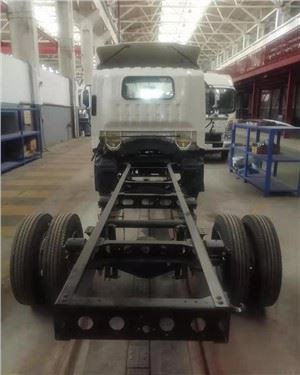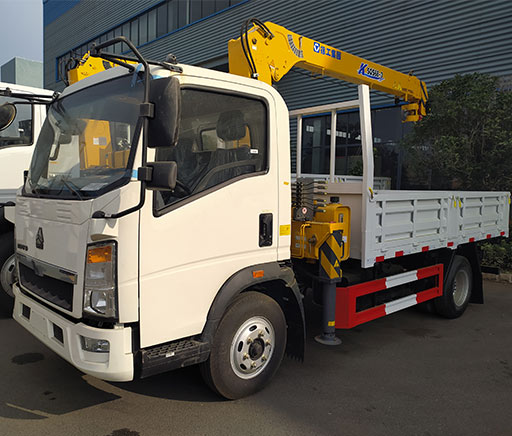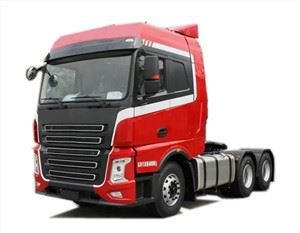Understanding Water Lorries: Essential Vehicles for Water Transportation
Water lorries, also known as water tankers or water trucks, play a crucial role in the transportation and distribution of water for various applications. This article aims to provide a comprehensive overview of water lorries, their functions, types, and advantages, as well as practical tips for their use. By the end of this article, readers will gain a solid understanding of the significance of water lorries in our daily lives.
What Is a Water Lorry?
A water lorry is a specialized vehicle designed for the safe and efficient transportation of water. These vehicles are equipped with tanks that can hold various amounts of water, making them suitable for different purposes, including construction sites, agricultural irrigation, firefighting, and potable water supply.

History of Water Lorries
The history of water lorries dates back to the early 20th century when motor vehicles became more common. Initially, these vehicles were horse-drawn carts equipped with barrels, but with the advancement of technology, motorized water lorries emerged, improving efficiency and capacity.
Types of Water Lorries
Water lorries come in various designs catering to specific needs. Below are the main types:
- Potable Water Tankers: Designed to transport drinking water, these tankers must meet strict health regulations.
- Construction Water Trucks: Used for construction projects, they help with dust suppression and soil compaction.
- Fire Water Tankers: Equipped with pumps and firefighting equipment, these lorries are essential for emergency response.
- Wastewater Tankers: Designed for transporting sewage and wastewater, these vehicles are used in municipal services.
How Water Lorries Work
Water lorries are equipped with various features that allow them to load, transport, and unload water effectively. The mechanics include:
Loading Mechanism
Water lorries can be loaded via hydrants or water sources such as lakes and rivers. Most modern lorries are equipped with pumps that facilitate quicker loading.
Storage Tank
The water tank is the core component of a water lorry. It is crafted from durable materials that prevent contamination and ensure longevity. Capacity can range from a few hundred liters to several thousand liters, depending on the vehicle’s design.
Pumping System
A pumping system is integral to water lorries, allowing for the efficient distribution of water. Many lorries have the option to pressurize the water for higher flow rates, useful for firefighting or irrigation applications.
Advantages of Using Water Lorries
There are several advantages to using water lorries for water transportation:
Flexibility
Water lorries can transport water over significant distances and are adaptable to various terrains, making them suitable for both urban and rural settings.
Efficiency
They can deliver large quantities of water in a single trip, reducing transportation time compared to smaller vehicles.
Emergency Supply
Water lorries provide a vital resource during emergencies, such as droughts or natural disasters, ensuring communities have access to fresh water.
Cost-Effectiveness
In many situations, using a water lorry is more cost-effective than alternative water supply methods, especially for large-scale operations.
Applications of Water Lorries
Water lorries are utilized in various sectors. Here are some common applications:
Construction Sites
Construction sites use water lorries for dust control, compaction of earth materials, and concrete mixing.
Agriculture
Farmers use water tankers for irrigation purposes, particularly in areas where access to reliable water sources is limited.
Municipal Services
Local governments deploy water lorries for maintaining water quality in recreational areas and supplying water during outages.
Firefighting
Firefighting services often utilize specialized water tankers for efficient firefighting operations, particularly in areas lacking hydrants.
| Application | Description | Benefits |
|---|---|---|
| Construction Sites | Used for dust suppression and water supply for concrete mixing. | Improved safety and efficiency at construction sites. |
| Agriculture | Supplies water for irrigation in areas with limited water access. | Enhanced crop yield and sustainability. |
| Municipal Services | Provides water during supply shortages and maintains public areas. | Ensures water is available in emergencies. |
| Firefighting | Delivers water to extinguish fires in remote areas. | Rapid response in emergency situations. |

Practical Tips for Using Water Lorries
To maximize the efficiency and effectiveness of water lorries, consider the following tips:
Plan Your Route
Map out the most efficient route to your destination to save time and fuel.
Regular Maintenance
Ensure that the water lorry undergoes regular maintenance checks to keep all components, especially the pump and tank, in good condition.
Monitor Water Quality
For potable water transport, regularly check the water quality to ensure it meets health regulations.
Use Appropriate Equipment
Select the right type of water lorry based on your specific needs, whether it be for construction, agriculture, or emergency services.
Common Challenges with Water Lorries
Despite their benefits, water lorries face several challenges:
Contamination Risks
Improper storage and handling can lead to water contamination, which is particularly crucial for potable water tankers.
Regulatory Compliance
Water lorry operators must comply with various regulations concerning water supply, especially in urban areas.
Vehicle Maintenance Costs
Regular maintenance on water lorries can be costly, which may affect the operational budget.
FAQs about Water Lorries

1. What is the average capacity of a water lorry?
Water lorries typically hold between 1,000 to 10,000 liters of water, depending on the vehicle’s design and specific purpose.
2. Are there regulations concerning potable water tankers?
Yes, potable water tankers must adhere to stringent health regulations to ensure the safe transportation of drinking water.
3. How can I find a reputable water lorry service?
Look for companies with good reviews, proper certification, and experience in the type of water transport you require.
4. Can water lorries be used for industrial purposes?
Absolutely, water lorries are commonly used in industrial applications for processes requiring large quantities of water.
5. What maintenance is required for a water lorry?
Regular checks of the tank, pump, tires, and engine are essential, along with ensuring the vehicle meets health and safety regulations.
6. How do I ensure the water quality during transport?
Use clean tanks, sanitize them regularly, and monitor water quality throughout the transportation process.
